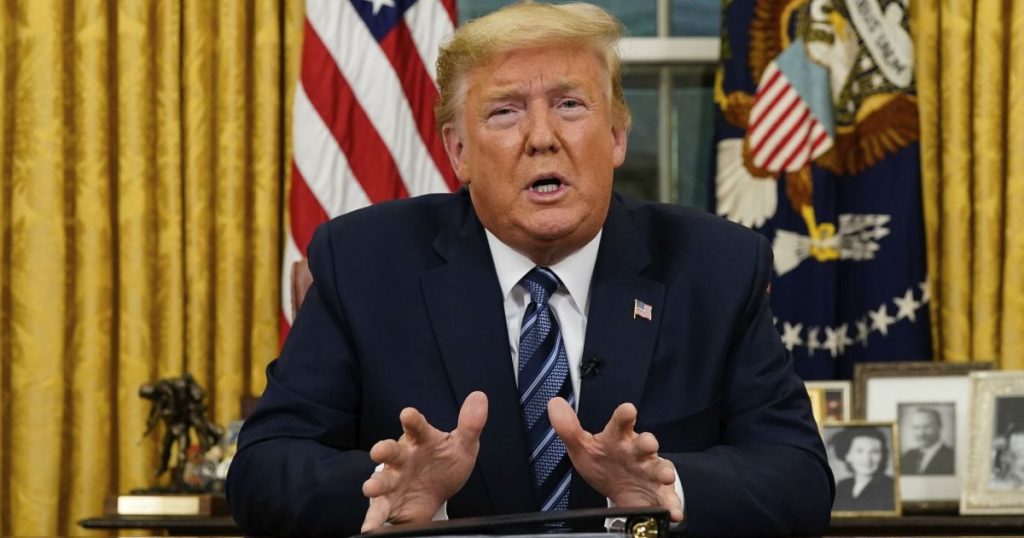The Biggest Lie in Donald Trump’s Coronavirus Address
Doug Mills/The New York Times/AP
On Wednesday night, Donald Trump announced that he would restrict travel from Europe—excluding the United Kingdom—beginning on Friday, for the next 30 days. “Anything coming from Europe to the United States is what we are discussing,” he said.
The president also attempted to reassure the country by saying the United States is “more prepared” to fight the pandemic than any other nation. “The virus will not have a chance against us,” he said.
Public health officials beg to differ. Our hospitals, experts say, are severely underprepared for the expected number of coronavirus cases. According to biologist Liz Specht, writing in STAT, the United States has about 2.8 hospital beds per 1,000 people, and if 10 percent of coronaviruses cases require hospitalization, beds will be at capacity by early- to mid-May. (And, given the lack of testing in the US, it’s not clear how many Americans have been infected in the first place.) On top of that, as my colleagues Will Peischel and Jessica Washington reported last week, in 2018 Trump cut most of the Centers for Disease Control and Prevention’s funding for fighting pandemics. That same year, the head of the National Security Council’s global pandemic team left his post, followed shortly after by the entire team. The positions remain empty.
Trump has also been criticized for his slow response to the coronavirus outbreak, and for his efforts to downplay the risk associated with it. In one memorable moment last week, Trump appeared to suggest that he didn’t want passengers trapped aboard the Grand Princess cruise ship, some of whom had become infected with the virus, off the coast of San Francisco to come ashore because it would make him look bad: “I don’t need to have the numbers double because of one ship that wasn’t our fault,” he said.
He has also compared COVID-19 to “the regular flu,” suggesting the flu was more dangerous than the coronavirus (Indeed, the flu kills tens of thousands of people every year, but the coronavirus’ estimated mortality rate is higher than the flu, suggesting that a large-scale coronavirus outbreak in the United States would be very bad.)
It’s not even certain Trump’s travel restriction will be effective, now that we’re dealing with a global pandemic. Last month, Anthony Fauci, director of the National Institute of Allergy and Infectious Diseases, told CNBC, “When it was focused only on China, we had a period of time, temporary, that we could do a travel restriction that prevented cases from coming into the US.” He added, “When you have multiple countries involved, it’s very difficult to do; in fact, it’s almost impossible.”
Watch Trump’s remarks:
JUST IN: President Trump will suspend all travel from Europe to the US for the next 30 days due to the coronavirus, but makes an exception for the UK https://t.co/tFOpudNGqz pic.twitter.com/iuQIvJRjVn
— CNN Politics (@CNNPolitics) March 12, 2020





